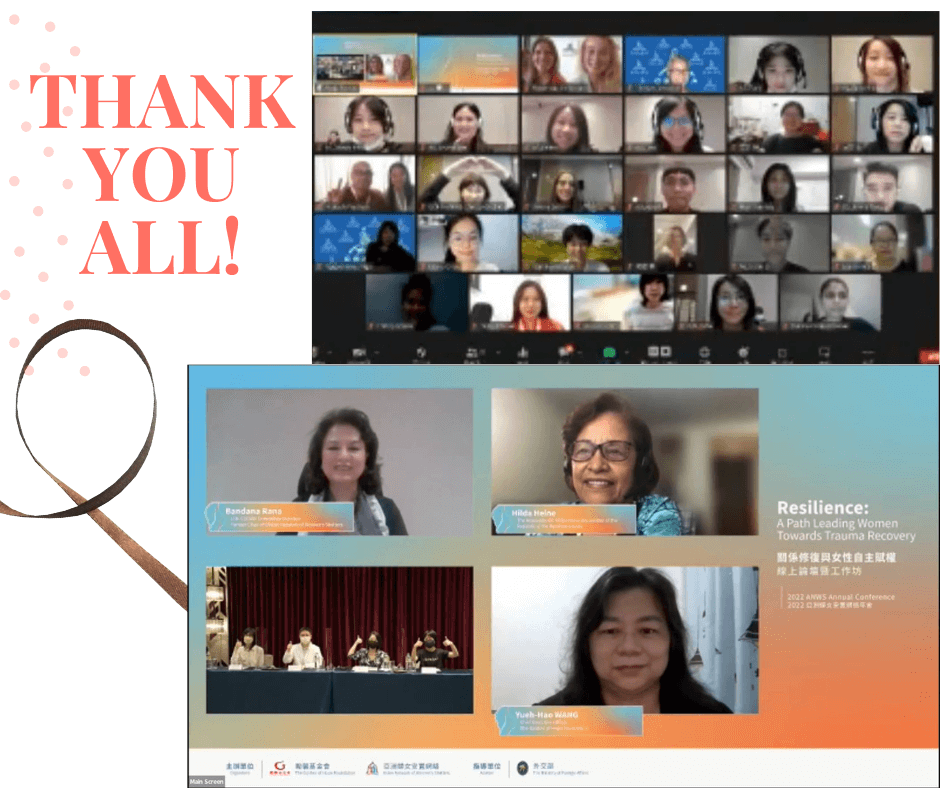The 2022 Asian Network Women’s Shelters (ANWS) Annual Conference held virtually on September 2 brought together over 200 participants spanning across numerous international organizations and countries around the world including Taiwan, the United States, Singapore, Nepal, and the Netherlands, just to name a few.
The theme of the conference this year focused on resilience in the path towards trauma recovery as women navigate and repair their relationships with perpetrators and other figures central to their lives. The powerful theme of resilience aligns with the purpose of ANWS to end all forms of gender-based violence in addition to corresponding with the Garden of Hope Foundation’s (GOH) goal to rehabilitate and empower women.
Trauma Recovery Is Not Just A Matter of The Victim
The director, Yu-Hua LEE, of Linkou Service Center shared that “In fact, today I heard some sharing from other lecturers, including how they use sensorimotor [psychotherapy] as a method to provide help to children. She also shared the story about how they used the intervention of psychological counseling to help victims. Based on my impression, she raised an important point that men are also a very important part of this recovery work because incidents of violence are a matter that involve everyone. I think if we can learn through such exchanges, we can learn that trauma recovery is not just a matter of the victim. It is a matter of everyone around, including everyone in the community, and even a matter everyone should focus on in the country, which I believe is very important. In our own talk, we mentioned that, in fact, this matter cannot solely rely on the strength of one individual or that of NGOs. The country should take these matters into account when formulating its policies and provide resources to those in need” in a post-conference interview.
Dr. Bandy Lee, the President of World Mental Health Coalition, also share that “policy changes through new laws, widespread services, and education campaigns can change the rates of violence against women and girls.” She also emphasis that whereas treating traumatized victims and rehabilitating individual offenders are important, we can also prevent violence from happening in the first place if we give a little focus to policy—and small shifts in policy can go a long way.
Trauma recovery isn’t easy. Yu-Hsin of the Linkou Service Center said that “I feel a big challenge is since the process of trauma recovery requires a lot of time, in other words, it is very hard to say that after one or two consultations and a few months of work you can make a full recovery. Then, how do we convince the public and the government to believe that this matter should be done? [How do we convince] everyone to be concerned about this matter, and to put resources here? I believe it is actually a process that requires continuous dialogue. Within our talk, we also mentioned that in fact, a person, no matter how he is treated, will treat his surrounding environment in the same way.”

